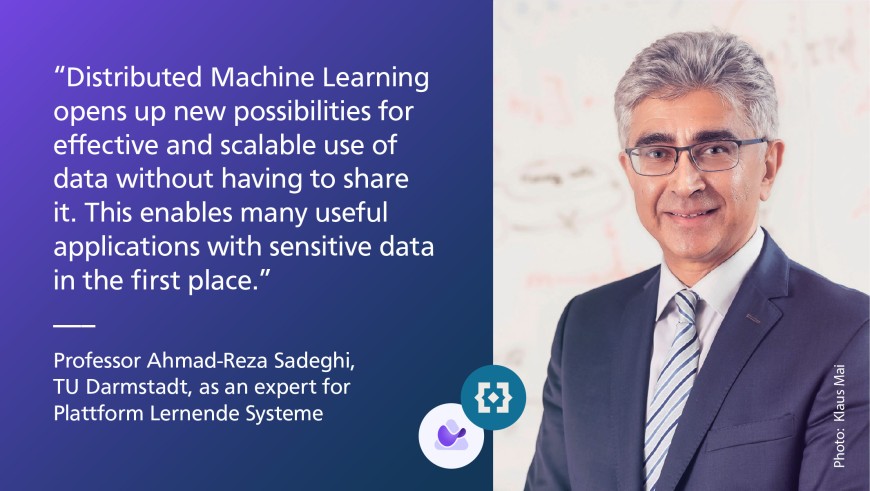Data Protection for AI
Prof. Ahmad-Reza Sadeghi as expert advisor on distributed machine learning
2022/10/13 by PLS/df
Machine learning systems are increasingly being integrated in many processes of our society and economy. For example, machine learning algorithms take on important functions in driverless vehicles or digital healthcare. In these areas of application, AI systems must not only make reliable predictions, but also resist attacks and manipulation to ensure privacy of sometimes sensitive data as well as maintain trust in the technology.
In current AI development, the method of centralized machine learning is very common, where a statistical model is trained centrally on a server. A disadvantage of this method from the viewpoint of cybersecurity is that the centralized server creates a central data collection and a single point of attack. There are however ways to combine data use and privacy protection. One approach is distributed machine learning. “Distributed Machine Learning opens up new possibilities for effective and scalable use of data without having to share it. This enables many useful applications with sensitive data in the first place”, says professor Ahmad-Reza Sadeghi, head of the System Security Lab.
In distributed machine learning, each end device accesses the current training model and trains it locally with its own data set. The new publication “AI at a Glance. Distributed Machine Learning” (opens in new tab) by Lernende Systeme, Germany's Platform for Artificial Intelligence, explains how different methods of distributed machine learning work and their pros and cons with regard to data protection. Sadeghi, member of their working group on IT Security and Privacy, was one of the expert advisors for the publication. You can also read the related interview “Does AI need a new cybersecurity mindset?” with professor Sadeghi by online journalist Matthias Bastian at THE DECODER.
About European Cybersecurity Month
This article is part of a miniseries for the European Cybersecurity Month (ECSM) 2022. ECSM has been a pan-European format to promote cybersecurity. Every Thursday in October 2022, hessian.AI, the Hessian Center for Artificial Intelligence, and the Department of Computer Science at TU Darmstadt provide insights into how artificial intelligence and cybersecurity successfully interact and benefit from each other. In the first installment of the series, hessian.AI introduced Queryella, a start-up project that originated in the research group of professor Mira Mezini. Next Thursday (October 20th, 2022) you can meet some of the founding projects and startups that sprung from our department and or were supported by hessian.AI live at the Darmstadt Innoday. Watch our social media channels for a recap!



